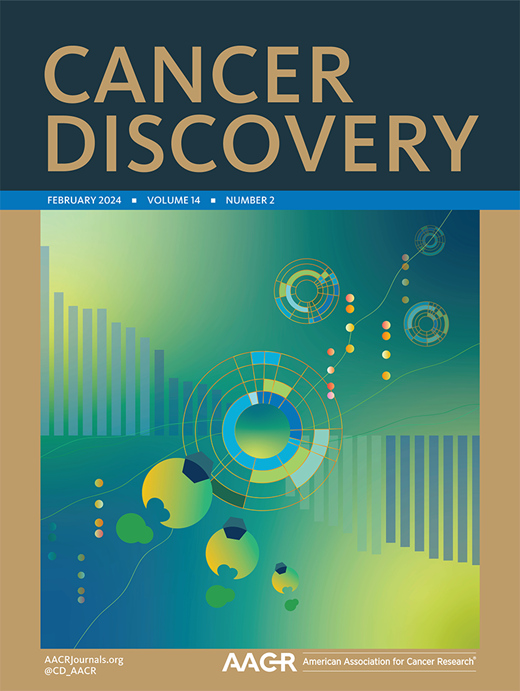免疫力学检查点PYK2控制胰腺癌中单核细胞向巨噬细胞的分化
IF 29.7
1区 医学
Q1 ONCOLOGY
引用次数: 0
摘要
胰腺导管腺癌(PDAC)以纤维化、僵硬的肿瘤微环境(TME)为特征,肿瘤相关巨噬细胞(tam)驱动ECM重塑、进展和免疫逃避。机械线索对单核细胞分化为tam的贡献在很大程度上仍未被探索。在这里,我们表明机械力是单核细胞向巨噬细胞分化所必需的。PYK2作为一种创新的免疫力学检查点,实际上控制着这种分化过程。我们证明PYK2通过Piezo1和整合素感知机械信号,触发F-actin聚合并转运到细胞核以调节机械转导和分化基因(如ACTR3, RELA)。PYK2的靶向缺失会损害单核细胞源性巨噬细胞的分化和极化,重塑PDAC微环境,增强抗pd -1免疫治疗的疗效。这些发现强调了机械信号在单核细胞分化中的关键作用,并表明靶向PYK2是一种有希望的策略,可以调节TAM功能并改善PDAC患者的免疫治疗结果。本文章由计算机程序翻译,如有差异,请以英文原文为准。
An immunomechanical checkpoint PYK2 governs monocyte-to-macrophage differentiation in pancreatic cancer
Pancreatic ductal adenocarcinoma (PDAC) is characterized by a fibrotic, stiff tumor microenvironment (TME), where tumor-associated macrophages (TAMs) drive ECM remodeling, progression, and immune evasion. The contribution of mechanical cues to monocyte differentiation into TAMs remains largely unexplored. Here we show that mechanical force is required for monocyte-to-macrophage differentiation. PYK2, as an innovative immunomechanical checkpoint, de facto governs this differentiation process. We demonstrated that PYK2 senses mechanical signals via Piezo1 and integrins, triggering F-actin polymerization and translocating to the nucleus to regulate mechanotransduction and differentiation genes (e.g., ACTR3, RELA). Targeted deletion of PYK2 impairs the differentiation and polarization of monocyte-derived macrophages, reshapes the PDAC microenvironment, and enhances the efficacy of anti-PD-1 immunotherapy. These findings underscore the critical role of mechanical cues in monocyte differentiation and suggest that targeting PYK2 is a promising strategy to modulate TAM function and improve immunotherapy outcomes in patients with PDAC.
求助全文
通过发布文献求助,成功后即可免费获取论文全文。
去求助
来源期刊

Cancer discovery
ONCOLOGY-
CiteScore
22.90
自引率
1.40%
发文量
838
审稿时长
6-12 weeks
期刊介绍:
Cancer Discovery publishes high-impact, peer-reviewed articles detailing significant advances in both research and clinical trials. Serving as a premier cancer information resource, the journal also features Review Articles, Perspectives, Commentaries, News stories, and Research Watch summaries to keep readers abreast of the latest findings in the field. Covering a wide range of topics, from laboratory research to clinical trials and epidemiologic studies, Cancer Discovery spans the entire spectrum of cancer research and medicine.
 求助内容:
求助内容: 应助结果提醒方式:
应助结果提醒方式:


